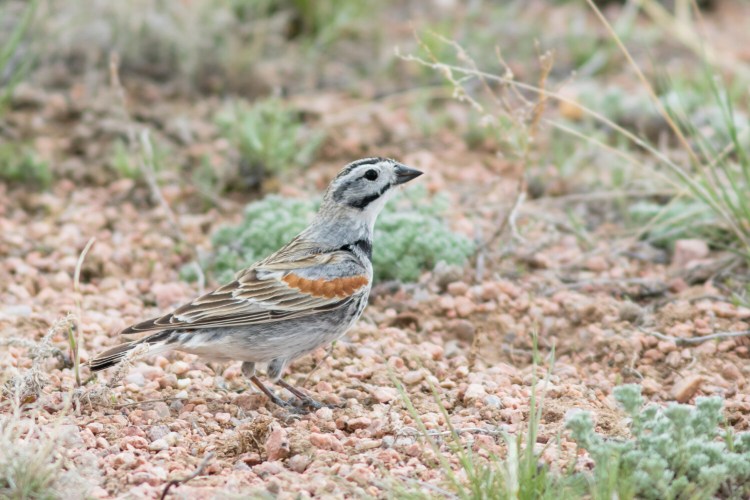Lots of birders and ornithologists keep an eagle eye out in early July for the annual supplement to the AOU Checklist of North American Birds. This checklist is maintained by a committee of distinguished ornithologists well-versed in avian taxonomy and morphology. These scientists constitute the North American Checklist Committee of the American Ornithologists Society.
The charge of this committee is to evaluate recent changes in the distribution of North American birds and research on variation in species. They then amend the list of common and scientific names of our birds based on this research. The committee also sets the order in which species are listed to reflect current understanding of the relatedness of different species. The NACC accepts proposals from anyone, but proposals must be strongly argued to receive their support.
Birders who are active list keepers are keen to read the annual report because one’s life list can be affected by NACC decisions. For instance, Thayer’s gull was combined with Iceland gull a few years ago, so many birders saw their lists decline by one species. But a split of winter wren into the Eastern winter wren and the Western Pacific wren gave some birders an armchair addition.
This year’s report had little effect on North American life lists. White-winged scoter was split into three species, but only one of those occurs in North America. The new species are called velvet scoter, found in western and central Eurasia, and Stejneger’s scoter, found in northeastern Eurasia and occasionally in Alaska. Our species remains the white-winged scoter.
The only other change affecting Maine birds was moving the Tennessee warbler, Nashville warbler and some storm petrels into a different genus and changing the checklist order of plovers, swallows and sparrows. A concise summary of the changes can be found at: blog.aba.org/2019/06/aos2019.html

Cooper’s hawk or Cooper hawk? A proposal before the American Ornithologists Society argued that the apostrophe is superfluous. Eivor Kutcha/Shutterstock
To me, some of the proposals that were not accepted were thought-provoking. One advocated changing the common name of salt marsh sparrow to Peterson’s sparrow to honor the contributions to ornithology of Roger Tory Peterson. Accepting that proposal would set a new precedent. No bird has been described with petersoni as its species name. As well-meaning as this proposal might be, I am not surprised that it was rejected.
On the western plains, McCown’s longspur is a common member of the new world sparrow family. It’s scientific name is Rhynchophanes mccownii. The species is named after Capt. John Porter McCown of the U.S. Army. In 1851, McCown shot at a flock of horned larks and discovered he had killed a different bird, as well as many larks. He gave the specimen to the ornithologist George Lawrence. Lawrence described the new species and named it after McCown. Note that McCown was not an ornithologist and collected the bird inadvertently. Nonetheless, the scientist who describes a new species has the right to attach a species name of her/his choice.
The person who sent a proposal to the NACC asked that McCown’s name be stripped from the common name. The reason is that McCown resigned his U.S. Army commission in 1861 and joined the Confederate army. The proposer argues that the American Ornithologist Society needs to promote the inclusion of diversity by not recognizing someone who promoted slavery. The NACC was not compelled to change the common name. Even if a new common name was assigned, the scientific name would have to remain mccownii.
Ted Floyd, the editor of Birding magazine, proposed a change in spelling for common names honoring people. His argument is that the possessive form of the name is grammatically peculiar and misleading. Cooper’s hawk is not a hawk owned by Cooper. Floyd argues that Cooper hawk should be the form used. We do not use the possessive form in other uses: Washington County, Kennedy Memorial Drive, Douglas fir, Heimlich maneuver, Mark Twain Prize. He argued we should use Swainson thrush, Bonaparte gull and Lincoln sparrow. I found his arguments compelling, but the NACC rejected his proposal.
Herb Wilson teaches ornithology and other biology courses at Colby College. He welcomes reader comments and questions at whwilson@colby.edu.
Send questions/comments to the editors.



Success. Please wait for the page to reload. If the page does not reload within 5 seconds, please refresh the page.
Enter your email and password to access comments.
Hi, to comment on stories you must . This profile is in addition to your subscription and website login.
Already have a commenting profile? .
Invalid username/password.
Please check your email to confirm and complete your registration.
Only subscribers are eligible to post comments. Please subscribe or login first for digital access. Here’s why.
Use the form below to reset your password. When you've submitted your account email, we will send an email with a reset code.